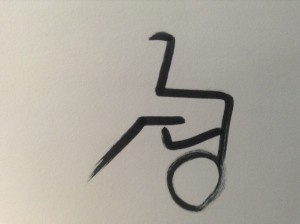Myths & Truths About Writing Talent

Myth #1: Successful, gratified writers mostly have talent.
Myth #2: Marketing & platform-building are the most important qualities for any writer to have a long-term career these days.
A few years ago, a question troubled me. Among the many creatives and professionals, especially writers or aspiring writers, I noticed that some writers prevailed over the long run and others didn’t.
I have witnessed a woman who started with an engaging life experience, 48 rough pages, no knowledge of what it takes to write a memoir, and rough intuitions about what makes for good story derived from years of reading become a New York Times best-seller.
I have witnessed a man who had years of corporate copywriting experience behind him, start with an elaborate conception for a novel all in his head, no knowledge of what it takes to write and complete a novel, and pockets of time to write between raising his first child and keeping his job write a brilliant, engaging YA novel.
But I’ve also witnessed people with potentially great ideas and stories, strong writerly instincts, and wild passion for creativity ultimately flounder and fade away.
I have seen great minds spin off without direction and into utter despair.
So, one question I have lived in: Why do some writers prevail, complete their projects, and launch their books or continue to publish within their genre, and why do others fade away after a few years or even months of trying?
When I ask any agent, editor, publisher (or writer’s spouse) who also works closely with writers this same question, none of them say of those who prevail and endure
- He’s a great marketer.
- She has a smashing platform.
- He’s simply talented.
In fact, at the Digital Book World Conference in New York City recently, I heard them say quite different things.
I have interviewed, worked with, and studied the habits, emotional qualities, and personality traits of hundreds of writers and authors. I also have reviewed and written about the various psychological and neuropsychological studies and theories of creativity.
And you know what? Talented individuals within any artistic field do exist, thrive, and innovate.
But three things about creative talent in general and writing talent in specific:
-
Talent is not all you need to succeed or feel gratified in your field.
-
Talent often is dormant. You can cultivate and bring it out.
-
If you don’t have talent, you can make up for it and potentially become more successful and gratified than someone with talent and not other qualities beyond talent.
Beyond talent, there is what I call a Writer’s Inner Game.
The Writer’s Inner Game is a set of habits, emotional qualities, and personality traits that countless writers and authors nurture.
It doesn’t matter whether the author publishes via traditional routes, self-publishing routes or in paper or digital or interactive or augmented reality book form.
The rules of the inner game apply to these writers.
Without an inner game, most writers or aspiring writers (or creatives in any field) simply will not last in the long run. Why? Because the demands of writing, the demands of an intensely creative life and mind, will beat you after a few years (or months).
Writing well is hard work. Writing well within a genre is hard work. Trying to innovate within a genre is extremely challenging work. Writing a short piece or long piece well is challenging work.
You can take courses. You can take programs. You can learn the craft. You can learn the tools. You can learn the tricks.
But without the inner game, you risk floundering.
And let me get out of the way 3 givens of the Inner Game – although they are not surprises:
Passion – essential but passion is too vague and general
Focus and stamina – utterly crucial
Discipline – without it, expect disaster
But beyond these givens are other qualities you might not expect:
More-Than-You Purpose – If your lens persists in being reflected back only on you, you, you, you likely won’t last
Empathy – Faulkner, Steinbeck, David Foster Wallace, Maxine Hong Kingston all say it’s essential. Without it, you have little capacity to delve into writers’ chief subject ~ the diversity and complexity of the human heart and condition
Wonder – Yep. Charles Baxter, Jonathan Safran Foer, Nicholson Baker, Haruki Murakami, Pablo Neruda, and so many more authors embody it, talk about it, and show it in their work. Without a capacity for wonder, an author ultimately will fall out of love with the whole endeavor ~ and the writing she crafts will lack the surprising, quiet musings that make writing memorable and lasting.
I want more writing that matters – writing that changes our minds, opens our hearts, and engages our imaginations – to get out into the world.
Game on.
DROP BY:
What habit or cultivated emotion keeps you thriving as a writer – or at least “in your own game” as a writer? I want to know and might reference you as an example.
Thanks for running with me,
Jeffrey